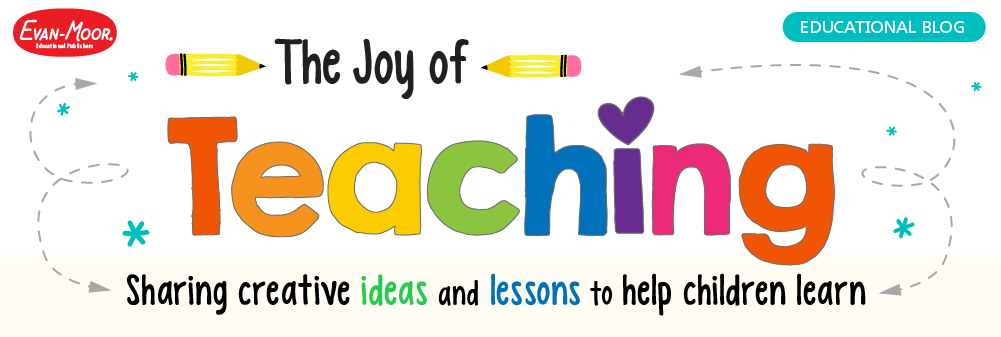 This simple “Silly Skeleton” art project was one of my favorites to do with my class around Halloween time. It was easy to integrate into a science unit, and it includes a poem for reading fluency practice. Plus, the completed art projects made a festive bulletin board. As a result, when posted altogether, they created the effect of a wall of dancing skeletons!
This simple “Silly Skeleton” art project was one of my favorites to do with my class around Halloween time. It was easy to integrate into a science unit, and it includes a poem for reading fluency practice. Plus, the completed art projects made a festive bulletin board. As a result, when posted altogether, they created the effect of a wall of dancing skeletons!
First, I reproduced a skeleton pattern for each student, and then we completed the skeleton art project together in class. You will need a few art supplies: glue, scissors, hole punch, white paper, black construction paper, and orange construction paper for the frame. (For younger students, you can use colored pencils to draw the eyes instead of using a hole punch.)
 Here’s the free downloadable activity: Silly Skeleton from Art for All Seasons.
Here’s the free downloadable activity: Silly Skeleton from Art for All Seasons.
Then, we would read and discuss the poem as a whole class for fluency practice. The poem can be glued to the front or back of the project. I would also make an extra copy of the poem for students to include in their journals or pronged poem books kept in their desks. This way, they could reread their growing collection of poems whenever they had a few extra minutes.
Next, I would extend the art project into a science unit on the skeleton. Here’s a sample science unit for grades 1–3 where students learn about the parts of a skeleton, name the bones, and complete simple experiments.
Last of all, remember to display the completed skeleton art projects in your classroom!
We’d love to see a photo of your silly skeletons! Please email photos to joyofteaching@evan-moor.com. We will display photos on our Halloween Pinterest board.
 For more Halloween ideas, see Evan-Moor’s Art for All Seasons and these blog posts:
For more Halloween ideas, see Evan-Moor’s Art for All Seasons and these blog posts:
 Educational Halloween Activities and Fun Classroom Ideas
Educational Halloween Activities and Fun Classroom Ideas
 Easy Hanging Spider Craft for Halloween
Easy Hanging Spider Craft for Halloween
For lesson printables and other classroom ideas, subscribe to Evan-Moor’s free e-newsletter!
 Marti Beeck enjoyed volunteering in her three children’s classrooms so deeply, that she returned to school to earn her CLAD teaching credential. For the next thirteen years, she worked as a classroom teacher in grades 1-3. Her experience as a primary classroom teacher, as well as adult school and intervention for elementary and high school, was inspired by her background in psychology and interest in brain-based learning. Marti currently works in the field of educational publishing as an editor.
Marti Beeck enjoyed volunteering in her three children’s classrooms so deeply, that she returned to school to earn her CLAD teaching credential. For the next thirteen years, she worked as a classroom teacher in grades 1-3. Her experience as a primary classroom teacher, as well as adult school and intervention for elementary and high school, was inspired by her background in psychology and interest in brain-based learning. Marti currently works in the field of educational publishing as an editor.

